Harnessing the Power of Organic Traffic: Strategies for Sustainable Growth

In today's digital landscape, organic traffic is the lifeblood of sustainable growth for any website. Understanding the nuances of organic traffic and harnessing its power is crucial for long-term success. By leveraging the right strategies and staying ahead of the curve, businesses can establish a strong online presence and drive meaningful traffic to their websites.
Understanding Organic Traffic
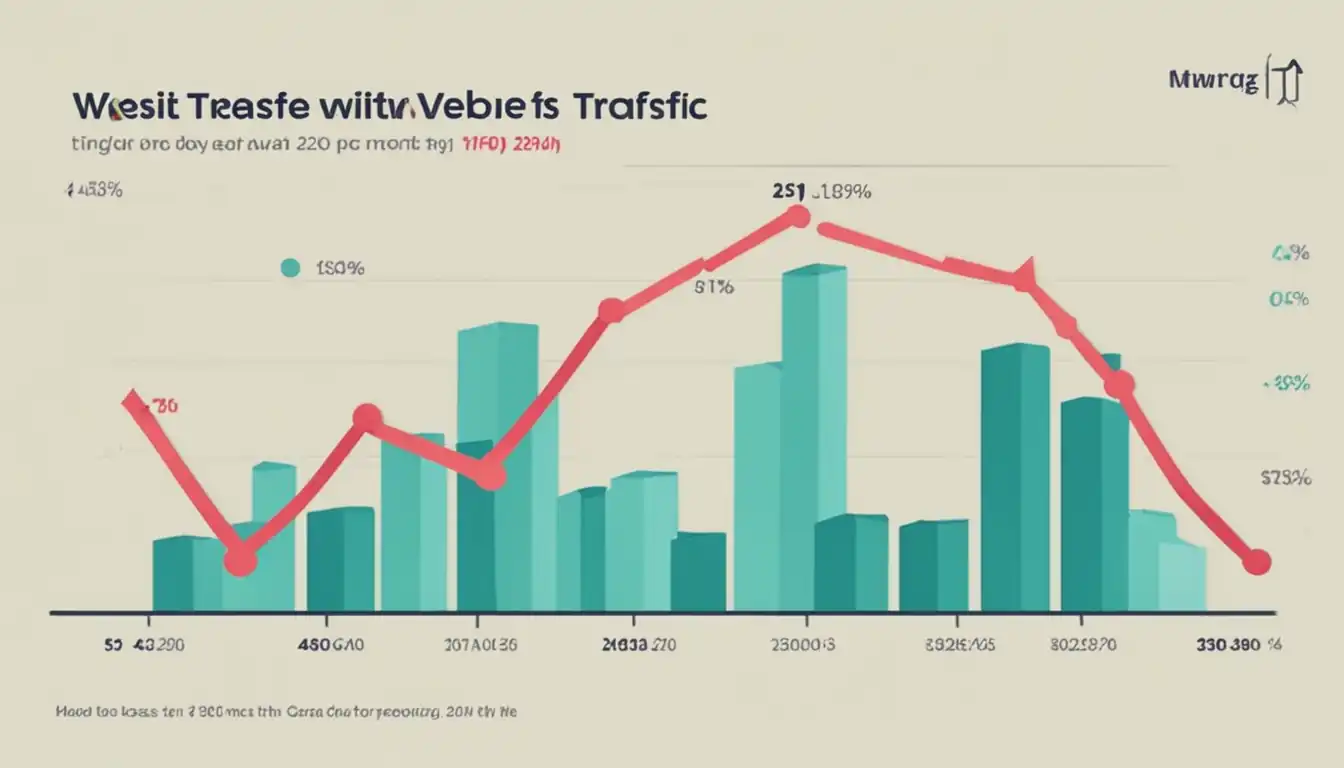
Organic traffic is the lifeblood of any successful website. It refers to the visitors who come to your site through unpaid search results. This means that when someone searches for a keyword related to your content, and your site appears in the search results, the traffic generated from that click is considered organic.
The Essence of Organic Traffic in the Digital Landscape
Organic traffic is highly valuable because it represents visitors who are actively seeking out the information or products that your website offers. This type of traffic is often seen as more trustworthy and reliable, as it is driven by the relevance and quality of your content rather than paid promotions. Additionally, organic traffic tends to have a higher conversion rate, as these visitors are already interested in what you have to offer.
Comparing Organic and Paid Traffic: Pros and Cons
When comparing organic and paid traffic, it's important to consider the pros and cons of each. Organic traffic is cost-effective in the long run, as it does not require ongoing payments for ad placements. It also tends to have a higher click-through rate and can provide long-term, sustainable results. However, it can take time to build up organic traffic, and it requires consistent effort in content creation and search engine optimization.
On the other hand, paid traffic can provide immediate results and allows for more control over who sees your ads. It can also be a valuable supplement to organic traffic efforts. However, it can be costly, and the traffic generated is often less qualified and may have a lower conversion rate.
In conclusion, while both organic and paid traffic have their advantages, organic traffic is essential for building a strong, sustainable online presence. It requires time and effort, but the long-term benefits make it a crucial aspect of any successful digital marketing strategy.
The Role of SEO in Driving Organic Traffic
SEO plays a crucial role in driving organic traffic to your website. By optimizing your content and website for search engines, you can increase your visibility and attract more visitors without having to pay for ads.
Core Principles of SEO for Organic Reach
When it comes to optimizing your content for organic reach, there are a few core principles to keep in mind. First, focusing on relevant keywords and creating high-quality, valuable content is essential. Additionally, optimizing your website's technical aspects, such as site speed and mobile-friendliness, can also improve your organic reach.
SEO Myths Debunked: Sticking to What Works
There are many myths and misconceptions surrounding SEO, and it's important to debunk them in order to focus on what truly works. For example, keyword stuffing and buying backlinks are outdated and ineffective tactics that can actually harm your organic reach. Instead, focusing on creating valuable content and building natural, high-quality backlinks is key to driving organic traffic to your website.
Crafting Content That Ranks

When it comes to creating content that ranks well in search engines, it's important to understand the art of keyword research for organic visibility. This involves finding the right keywords that your target audience is searching for, and strategically incorporating them into your content.
Content creation is not just about stuffing keywords into your writing; it's about balancing quality with SEO. This means creating valuable, informative, and engaging content that also includes relevant keywords to improve organic visibility. It's a delicate balance that requires a deep understanding of your audience and the search algorithms.
On-Page SEO: Optimizing Your Content for Search Engines

When it comes to optimizing your content for search engines, on-page SEO is a crucial factor. It involves optimizing individual web pages to rank higher and earn more relevant traffic in search engines. By focusing on on-page SEO, you can improve the user experience and make it easier for search engines to understand and rank your content.
The Anatomy of a Perfectly Optimized Page
A perfectly optimized page includes several key elements that work together to improve its search engine ranking. These elements include:
- Title Tag: This is the title of the page that appears in search engine results. It should be descriptive, concise, and include relevant keywords.
- Meta Description: This is a brief summary of the page's content that appears in search engine results. It should be compelling and include relevant keywords.
- Headings: These are used to structure the content and should include relevant keywords to improve readability and SEO.
- URL Structure: The URL should be clean, descriptive, and include relevant keywords.
- Image Alt Text: This is a brief description of an image that appears if the image fails to load. It should be descriptive and include relevant keywords.
- Internal Links: These are links to other pages on your website and help search engines understand the structure of your site.
- Keyword Optimization: This involves strategically placing keywords throughout the content to improve its relevance to search queries.
Beyond Keywords: Understanding User Intent
While keywords are important, understanding user intent is crucial for on-page SEO. User intent refers to the reason behind a user's search query. By understanding what users are looking for, you can create content that meets their needs and provides value. This can include informational, navigational, and transactional intent, and your content should align with the intent of the user's search query.
In conclusion, on-page SEO is essential for optimizing your content for search engines. By focusing on the anatomy of a perfectly optimized page and understanding user intent, you can improve your content's visibility and relevance in search engine results.
Technical SEO: The Foundation of Organic Traffic
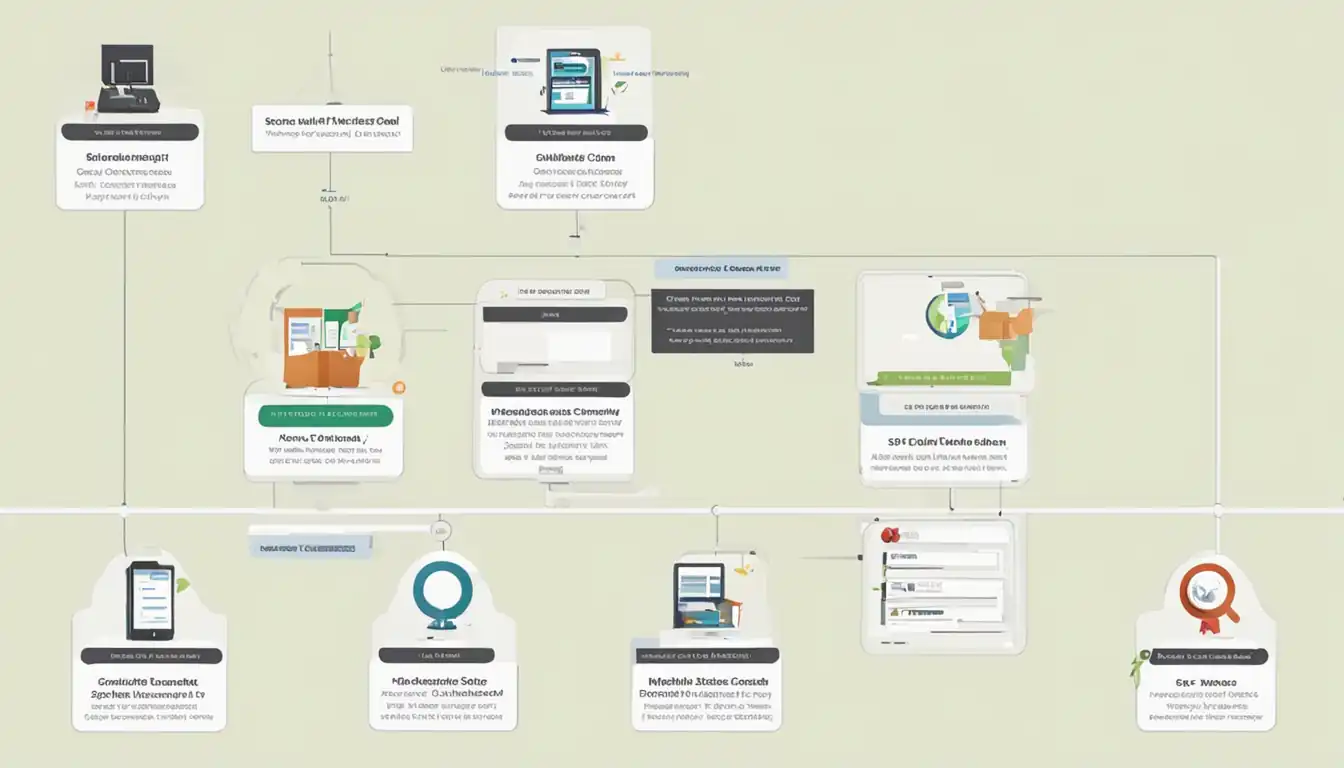
When it comes to driving organic traffic to your website, technical SEO is the key foundation. This aspect of SEO focuses on the technical elements of your website that impact its search engine rankings. Without a solid technical foundation, your site may struggle to rank well in search results, no matter how great your content is.
Site Structure and Its Impact on Organic Rankings
The structure of your website plays a crucial role in its organic rankings. A well-organized site structure makes it easier for search engines to crawl and index your pages, leading to better visibility in search results. On the other hand, a disorganized or confusing site structure can hinder your site's performance in organic search.
Key Points:
- Organize your website's content into logical categories and subcategories.
- Use clear and descriptive URLs for each page.
- Implement a breadcrumb navigation system to help users and search engines understand the hierarchy of your site.
Mobile Optimization: Catering to the On-the-Go User
With the increasing use of mobile devices, optimizing your website for mobile is essential for organic traffic. Search engines prioritize mobile-friendly websites in their rankings, and a poor mobile experience can negatively impact your organic visibility.
Key Points:
- Ensure your website is responsive and adapts to different screen sizes.
- Optimize page load times for mobile users.
- Use mobile-friendly navigation and design elements to enhance the user experience on smaller screens.
In conclusion, technical SEO, including site structure and mobile optimization, is the foundation of organic traffic. By paying attention to these technical aspects, you can improve your site's visibility in search results and attract more organic traffic.
Off-Page SEO: Building Authority and Trust
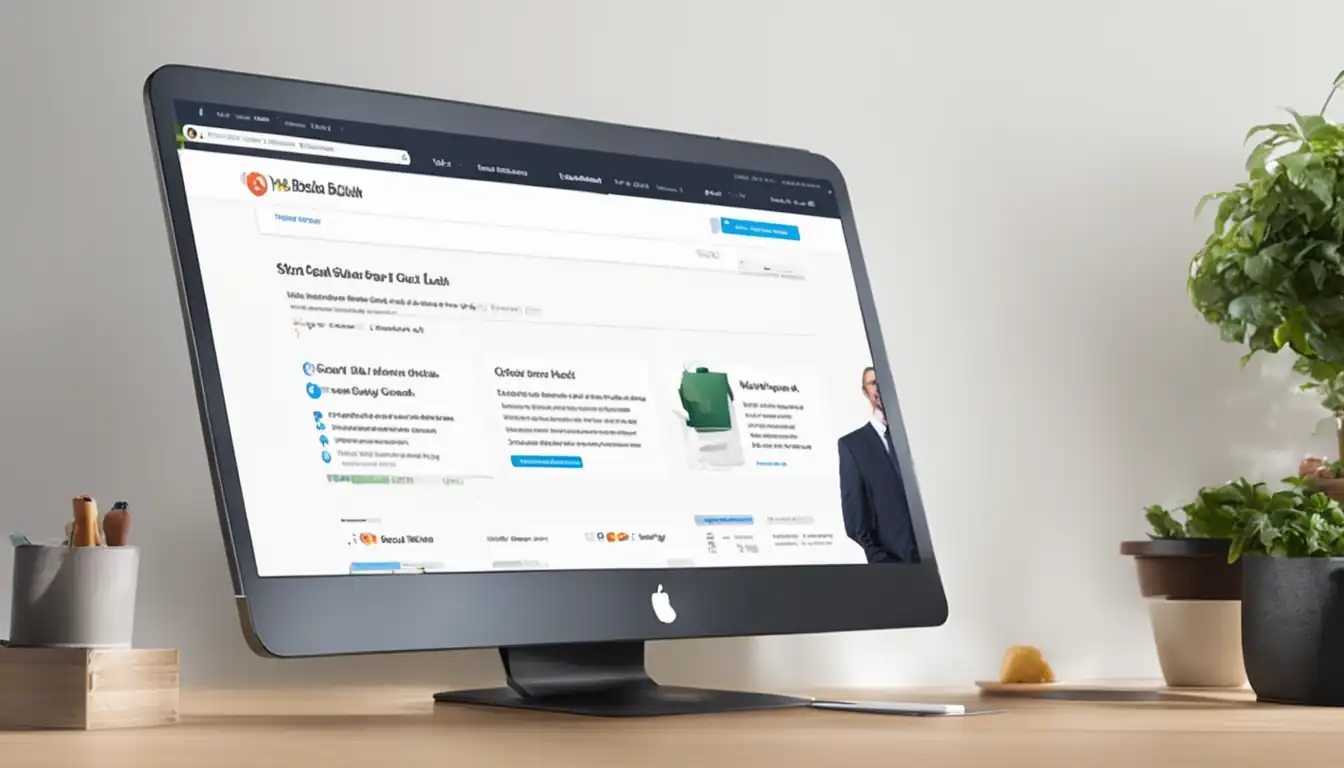
When it comes to off-page SEO, building authority and trust is crucial for improving your website's search engine rankings. This involves utilizing backlinks and social signals to demonstrate to search engines that your site is a reputable and valuable resource.
The Power of Backlinks in SEO
Backlinks are links from other websites that point to your site. They serve as a vote of confidence in your content and can significantly impact your site's authority and trustworthiness in the eyes of search engines. Quality backlinks from reputable sites are especially valuable and can help boost your site's organic traffic and search engine rankings.
Social Signals and Their Influence on Organic Traffic
Social signals, such as likes, shares, and comments on social media platforms, can also influence your site's organic traffic. When your content is shared and engaged with on social media, it signals to search engines that your content is valuable and relevant. This can lead to increased visibility and traffic to your site.
In conclusion, off-page SEO tactics such as building backlinks and leveraging social signals are essential for establishing authority and trust for your website. These strategies can have a significant impact on your site's organic traffic and search engine rankings.
Leveraging Analytics to Boost Organic Traffic
When it comes to optimizing your website for search engines, leveraging analytics is crucial for boosting organic traffic. By analyzing key metrics and using data to refine and adjust your SEO strategy, you can effectively improve your website's visibility and drive more organic traffic.
Measuring Success: Key Metrics to Track
To measure the success of your SEO efforts, it's important to track key metrics that indicate the performance of your website. These metrics may include:
- Organic Traffic: The number of visitors who land on your website through organic search results.
- Keyword Rankings: The position of your website for specific keywords in search engine results pages (SERPs).
- Bounce Rate: The percentage of visitors who leave your website after viewing only one page.
- Conversion Rate: The percentage of visitors who take a desired action, such as making a purchase or filling out a form.
By monitoring these metrics, you can gain valuable insights into the effectiveness of your SEO strategy and identify areas for improvement.
Using Data to Refine and Adjust Your SEO Strategy
Once you have collected and analyzed the relevant data, you can use it to refine and adjust your SEO strategy. For example, if you notice that certain keywords are driving a significant amount of organic traffic, you can focus on optimizing your content around those keywords. Similarly, if you find that a high bounce rate is impacting the performance of a specific landing page, you can make adjustments to improve its user experience.
By leveraging analytics to make data-driven decisions, you can continuously optimize your SEO strategy and ultimately boost organic traffic to your website.
Advanced Tactics for Increasing Organic Traffic
When it comes to boosting organic traffic to your website, it's important to go beyond the basics and explore advanced tactics. Two key strategies for increasing organic traffic are leveraging long-tail keywords and aiming for featured snippets.
Exploring the Potential of Long-Tail Keywords
Long-tail keywords are longer and more specific keyword phrases that visitors are more likely to use when they're closer to a point-of-purchase. These keywords often have lower search volume but higher conversion value, making them a valuable asset for driving targeted traffic to your site. By incorporating long-tail keywords into your content, you can attract more qualified leads and improve your chances of ranking higher in search engine results.
The Role of Featured Snippets in Gaining Visibility
Featured snippets are selected search results that are featured on top of Google's organic results below the ads in a box. These snippets aim to answer the user's query right away, providing a concise summary of the answer. By optimizing your content to appear in featured snippets, you can increase your visibility and drive more organic traffic to your site. This can be achieved by providing clear and concise answers to commonly asked questions in your niche, structuring your content in a way that's easy for search engines to understand, and using bold formatting for key points that could be featured in a snippet.
Common Challenges and Solutions in Growing Organic Traffic
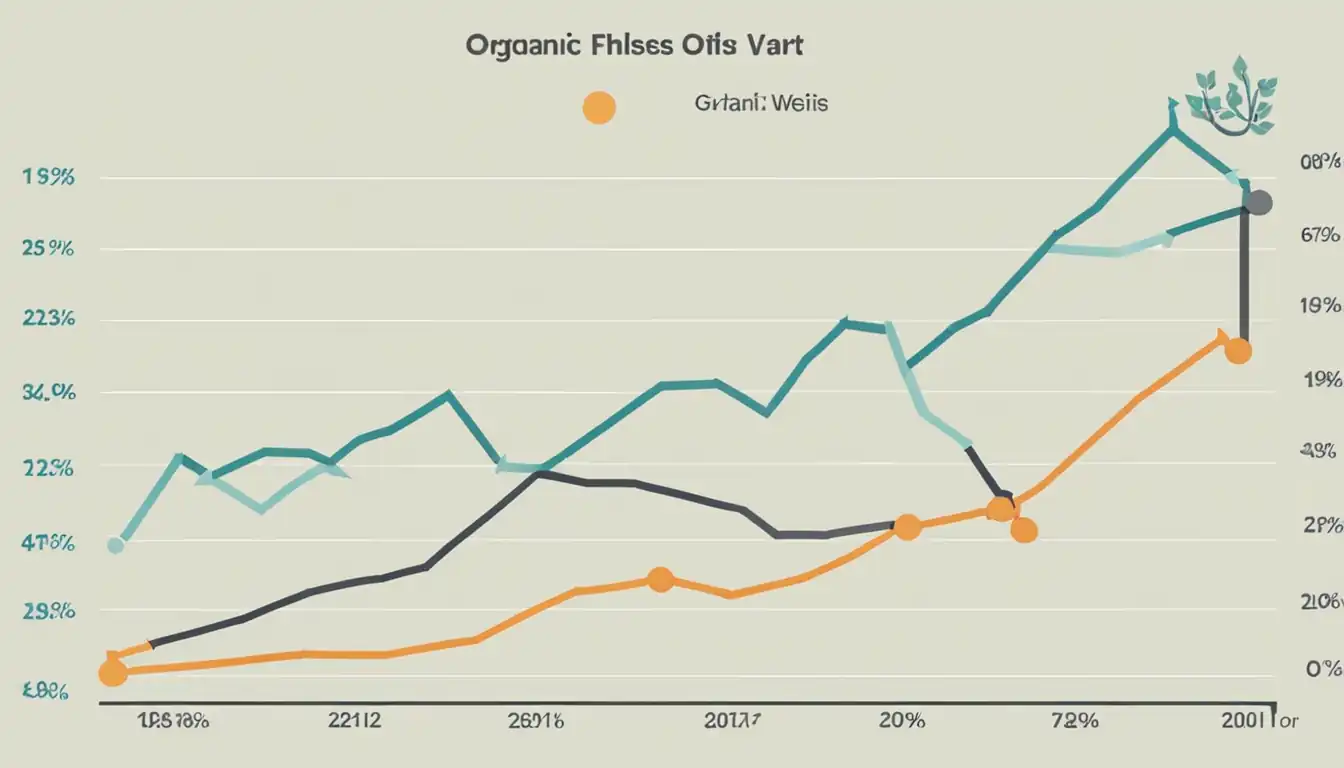
Overcoming Plateaus in Traffic Growth
One of the most common challenges in growing organic traffic is hitting a plateau. This can be frustrating for website owners and marketers who have put in a lot of effort to improve their SEO and content. To overcome plateaus in traffic growth, it's important to regularly audit your website for technical issues, update and optimize existing content, and consistently create high-quality, relevant new content. Additionally, building backlinks from reputable websites and engaging with your audience on social media can also help reignite traffic growth.
Dealing with Algorithm Changes and SEO Trends
Another challenge in growing organic traffic is dealing with algorithm changes and staying on top of SEO trends. Search engine algorithms are constantly evolving, and what works today may not work tomorrow. To address this challenge, it's crucial to stay informed about the latest SEO trends and algorithm updates, and be willing to adapt your strategies accordingly. This may involve adjusting your keyword targeting, optimizing for voice search, or improving your website's mobile-friendliness. Keeping a close eye on your analytics data can also help you identify the impact of algorithm changes and adjust your SEO strategies accordingly.
Real-World Examples of Organic Traffic Success
In the world of SEO, nothing speaks louder than real-world success stories. Case studies provide valuable insights into the strategies and tactics that have led to significant increases in organic traffic for various websites. These success stories serve as inspiration and guidance for those looking to improve their own SEO efforts.
Case Studies: From Zero to Organic Traffic Heroes
One of the most compelling types of case studies is the journey from zero organic traffic to becoming a true organic traffic hero. These stories often highlight the challenges faced, the strategies implemented, and the results achieved. They showcase the potential for growth and the power of effective SEO techniques.
Lessons Learned from Successful SEO Campaigns
Analyzing successful SEO campaigns can reveal valuable lessons that can be applied to other websites and industries. By examining the tactics and strategies that led to organic traffic success, SEO professionals can gain a deeper understanding of what works and what doesn't in the ever-changing landscape of search engine optimization.
Keeping Up with the Evolution of Organic Traffic
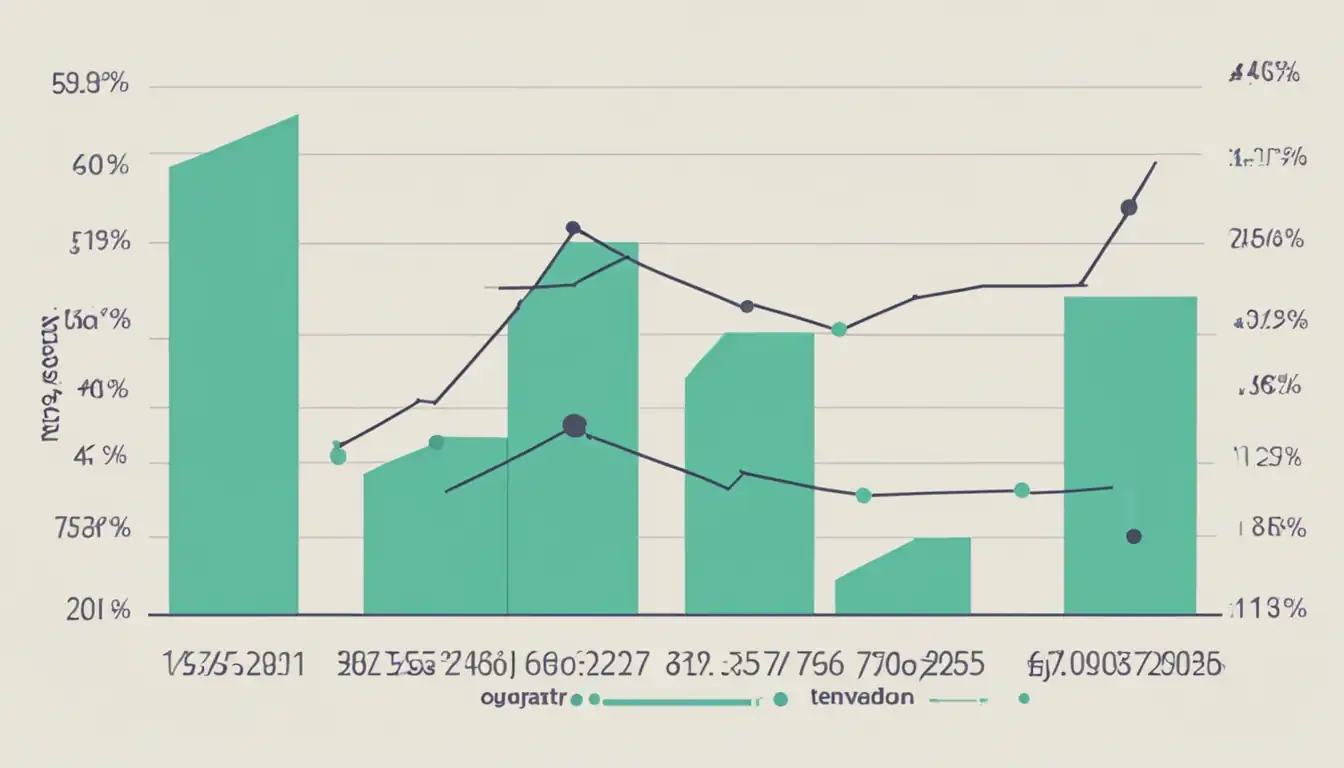
In the ever-changing landscape of SEO, it's crucial to stay ahead of the curve when it comes to organic traffic. With search engine algorithms constantly evolving, it's essential for businesses to adapt their SEO strategies to keep up with these changes. This means staying informed about the latest trends and updates in the world of organic search.
Staying Ahead: Continuous Learning in SEO
To stay ahead in the world of organic traffic, continuous learning is key. This involves staying up to date with the latest SEO best practices, algorithm updates, and industry trends. It also means being open to new ideas and strategies, and being willing to adapt and change as the SEO landscape evolves.
One way to stay ahead is by regularly reading industry blogs, attending webinars, and participating in SEO forums and discussions. By staying informed and engaged, businesses can ensure that their SEO strategies remain effective and up to date.
Predictions for the Future of Organic Search
Looking ahead, the future of organic search is likely to be shaped by advancements in technology, changes in user behavior, and updates to search engine algorithms. Voice search, mobile optimization, and user experience are all expected to play a significant role in the future of organic traffic.
As search engines continue to prioritize user experience and relevant, high-quality content, businesses will need to focus on creating valuable, engaging content that meets the needs of their target audience. This means optimizing for mobile, creating voice search-friendly content, and prioritizing user experience in order to stay competitive in the evolving landscape of organic search.
Final Thoughts on Building and Sustaining Organic Traffic
When it comes to building and sustaining organic traffic, it's important to remember that this is a long-term commitment. SEO efforts take time to yield results, and it's crucial to remain patient and consistent in your approach. Organic growth is not a quick fix, but rather a steady and sustainable strategy that requires ongoing effort and attention.
Encouraging a culture of SEO excellence in your organization is essential for long-term success. This involves educating and involving all team members in the importance of SEO, and ensuring that it is integrated into all aspects of your content creation and marketing efforts. By fostering a culture of SEO excellence, you can ensure that everyone is working towards the same goal of driving organic traffic and achieving long-term success.
Conclusion
As the digital landscape continues to evolve, the significance of organic traffic cannot be overstated. By embracing the core principles of SEO, crafting high-quality content, and adapting to changing trends, businesses can build and sustain organic traffic for the long haul. It's a commitment to excellence and continuous learning that will ultimately lead to success in the ever-changing world of organic search.